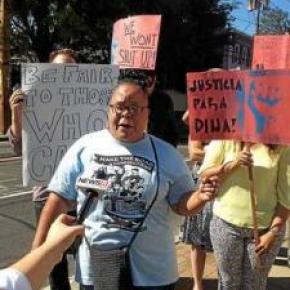The Tragedy of Janet Yellen
In December 2012, a new Federal Reserve governor and unseasoned monetary policymaker, Jerome Powell, told his colleagues that the risks of continued stimulus likely outweighed the benefits. Vice...
In December 2012, a new Federal Reserve governor and unseasoned monetary policymaker, Jerome Powell, told his colleagues that the risks of continued stimulus likely outweighed the benefits. Vice Chair Janet Yellen, even then one of the most experienced policymakers in the Fed’s 104-year history, acknowledged the concerns but pushed back forcefully. She argued that “slow progress in moving the economy back toward full employment will not only impose immense costs on American families and the economy at large, but may also do permanent damage to the labor market.” In other words, if we don’t take risks now to get more Americans employed, the country might lose the opportunity to ever fully recover from the Great Recession. She reminded her colleagues of the promise they had made: “We communicated that we will at least keep refilling the punch bowl until the guests have all arrived, and will not remove it prematurely before the party is well under way.”
Read the full article here.
Senator Warren to Join Call to Alter Sales of Distressed Loans
Senator Warren to Join Call to Alter Sales of Distressed Loans
Housing advocates have attracted a prominent ally in their push to change the federal government’s policy of selling distressed mortgages at a discount to ...
Housing advocates have attracted a prominent ally in their push to change the federal government’s policy of selling distressed mortgages at a discount to private equity firms and hedge funds.
Senator Elizabeth Warren, Democrat of Massachusetts, will join other lawmakers, advocates and community activists on Wednesday in a Washington rally to oppose the loan sale program.
The senator is expected to call on the Department of Housing and Urban Development and the federal overseer of Freddie Mac and Fannie Mae to make it easier for nonprofit organizations to bid for the bundles of distressed mortgages put up for auction, people briefed on the matter said.
The sale of distressed mortgages by HUD and the government-sponsored mortgage finance firms is drawing growing criticism from housing advocates and lawyers in recent months. The critics are concerned that the private buyers of distressed mortgages are moving to quickly to put borrowers into foreclosure as opposed to modifying the loans as housing officials had hoped.
The investors are buying loans often at a 30 percent discount.
One of the biggest buyers of distressed mortgages is Lone Star Funds, a $60 billion private equity firm based in Dallas. The firm, which is also buying soured mortgages directly from banks, has raised billions of dollars from investors, including public pensions to invest in distressed home loans.
The private equity firm’s practices in dealing with delinquent borrowers was the subject of a front-page article in The New York Times this week.
The housing advocates said that, in addition to noon rally with elected officials, they intended to protest outside of Lone Star’s offices in Washington.
Source: New York Times
City Council Votes to Increase Oversight of New York Police
The New York Times - June 27, 2013, by J. David Goodman - Over the objections of the mayor and police commissioner, the New York City Council early Thursday morning approved by veto-proof...
The New York Times - June 27, 2013, by J. David Goodman - Over the objections of the mayor and police commissioner, the New York City Council early Thursday morning approved by veto-proof majorities a pair of bills aimed at increasing oversight of the Police Department and expanding New Yorkers’ ability to sue over racial profiling by officers.
The two bills, known together as the Community Safety Act, passed during a late-night meeting of the Council that began after 11 p.m., lasted more than three hours and in which members also voted to pass the city’s budget and override a mayoral veto of a law on paid sick leave.
But it was the two policing bills that for months have stirred a heated public debate between its supporters, who are seeking a legal means to change the Police Department’s stop-and-frisk program, and Mayor Michael R. Bloomberg and Commissioner Raymond W. Kelly, who have warned that the measures would hamstring police officers and lead to a dangerous spike in crime.
One, known as Intro 1079, would create an independent inspector general to monitor and review police policy, conduct investigations and recommend changes to the department. The monitor would be part of the city’s Investigation Department alongside the inspectors general for other city agencies.
The law would go into effect Jan. 1, 2014, leaving the matter of choosing the monitor to the next mayor.
The other bill, Intro 1080, would expand the definition of bias-based profiling to include age, gender, housing status and sexual orientation. It also would allow individuals to sue the Police Department in state court — not only for individual instances of bias, but also for policies that disproportionately affect people in any protected categories without serving a significant law enforcement goal.
Both measures passed the 51-member Council with the votes needed to override a mayoral veto. As that threshold was passed just after 2:20 a.m., scores of supporters who had filled the chamber’s gallery and waited hours through the debate erupted into cheers.
Mr. Bloomberg, who has promised to veto both measures and this week called his opposition to them a matter of “life and death,” released a statement after the vote. “I will veto this harmful legislation and continue to make our case to Council members over the coming days and weeks,” he said.
An attempt to override his veto would extend the protracted clash between the mayor and the Council over policing. The process could take more than two months, putting the override vote only weeks before the mayoral primary.
The legislation has already been a nettlesome issue in the Democratic race for mayor, especially for Christine C. Quinn, the Council speaker, who has faced a growing challenge to her early front-runner status. She supported the measure creating an independent inspector general for the Police Department, which passed by a vote of 40 to 11, but she opposed the other, on police profiling, which received 34 votes in favor and 17 against.
“I worry about having too much judicial involvement,” she said before casting her vote, explaining that she did not believe the profiling bill would make New Yorkers less safe.
Despite her earlier stated opposition, she allowed both bills to move forward, and on Monday presided over a so-called discharge vote — the first since the current structure of the Council was established in 1989 — to bring the legislation out of committee, where it had stalled.
The two bills were first introduced as a package last year by Councilmen Jumaane D. Williams and Brad Lander.
Mr. Bloomberg has 30 days to veto the bills. If he does so, the City Council then has 30 days from its next full meeting to hold an override vote. The mayor and the Police Department have lobbied hard against the bills in public and behind the scenes, and they appeared likely to keep up the pressure between the veto and the override vote in an effort to change the minds of supporters.
Mr. Kelly sent a letter on Tuesday to each of the Council members, arguing that the profiling bill could be used to force the removal of surveillance cameras and urging them to vote against it. “The bill would allow virtually everyone in New York City to sue the Police Department and individual police officers over the entire range of law enforcement functions they perform,” Mr. Kelly wrote.
Mr. Williams, responding to Mr. Kelly’s letter, said: “If the cameras were put in high crime neighborhoods as a response, that’s good policing. If he put them there because black people live there, that’s a problem.”
At least one Council member received a call from his local police station commander to protest the legislation ahead of the vote.
“They were deeply concerned about 250s and said they would be unable to perform them because of the profiling part of the reform,” said Councilman Daniel Dromm of Queens, referring to the police form used for street stops. “But for me, it’s the teeth of the reform; it’s the needed piece.” He voted for both bills.
In voting against the two measures early Thursday morning, Peter F. Vallone Jr., the chairman of the public safety committee, said, “New Yorkers went to bed a long time ago, safe in their beds. But they are going to wake up in a much more dangerous city.”
Source
Yellen Says Improving Economy Still Faces Challenges
The Washington Post - August 22, 2014, by Ylan Q. Mui - Federal Reserve Chair Janet L. Yellen on Friday expressed growing confidence that America’s market is...
The Washington Post - August 22, 2014, by Ylan Q. Mui - Federal Reserve Chair Janet L. Yellen on Friday expressed growing confidence that America’s market is improving but uncertainty over how much further it has to go.
Yellen began her remarks before a select group of elite economists and central bankers here by enumerating the unequivocal progress made since the Great Recession ended: Job growth has averaged 230,000 a month this year, and the unemployment rate has fallen to 6.2 percent after peaking in the double digits during the depths of the crisis.
But she quickly transitioned to the challenges in determining how close the labor market is to being fully healed — and how much the nation’s central bank should do to speed its convalescence. Although Yellen has consistently emphasized that the recovery is incomplete, her speech Friday focused on the difficulty of making a current diagnosis.
“Our understanding of labor market developments and their potential implications for inflation will remain far from perfect,” Yellen said at the annual conference sponsored by the Federal Reserve Bank of Kansas City. “As a consequence, monetary policy must be conducted in a pragmatic manner.”
The Fed slashed its target for short-term interest rates to zero and pumped trillions of dollars into the economy in the aftermath of the recession. More than five years later, it is finally scaling back that support. The Fed is slated to end its bond-buying program in October and is debating when to raise interest rates.
That decision carries enormous consequences: Move too soon, and the Fed risks undermining the economic progress made so far. Move too late, and it could risk stoking inflation in the future and sowing the seeds of the next financial crisis.
Investors generally expect the Fed to raise rates in the middle of next year, but several central bank officials gathered here cautioned that the moment could come earlier if the recovery improves more rapidly than expected. Yellen gave no clear timeline Friday but called for a “more nuanced” reading of the labor market as the economy returns to normal.
For example, the size of the nation’s workforce unexpectedly declined after the recession, the result of both demographic factors and unemployed workers who gave up hope of finding a job. Yellen reiterated Friday that a stronger economy could help stem that drop and suggested it may already be working. She also said that the run-up in involuntary part-time work and the low level of people choosing to quit their jobs could be reversed as the labor market improves.
But Yellen seemed to shift her stance on the country’s stagnant wage growth. Previously, she has cited it as a sign that the labor market remains weak. But on Friday she called on research that suggests wage growth has been subdued because employers were unable to cut salaries deeply enough during the recession, a phenomenon dubbed “pent-up wage deflation.” She also suggested that globalization and the difficulty that the long-term unemployed face in finding jobs could also be depressing wage growth.
The uncertainty facing the Fed means it will be carefully evaluating economic data over the coming months, Yellen said. And she said the central bank will remain nimble in its response.
“There is no simple recipe for appropriate policy in this context, and the [Fed] is particularly attentive to the need to clearly describe the policy framework we are using to meet these challenges,” she said.
Central bankers were not the only ones gathered in the Grand Tetons this year. Several workers and activists also traveled to Jackson Hole and called on the central bank to be cautious in removing its support for the economy, the first protest at the conference in recent memory.
The grass-roots group, organized by the Center for Popular Democracy, also issued an open letter to the Fed earlier in the week signed by more than 60 activist organizations. Kansas City Fed President Esther L. George — one of the most vocal proponents of raising interest rates soon — met with the protesters in Jackson Hole on Thursday for about two hours to hear their stories. Ady Barkan, senior attorney at the Center for Popular Democracy, said the groups plan to request meetings with other Fed officials as well.
Source
Overnight Finance: Trump keeps up attack on Amazon
"We hope that John Williams's tenure as president will not be characterized by the same disregard for the public as his appointment was." -- Fed Up, a coalition of progressive non-profits focused...
"We hope that John Williams's tenure as president will not be characterized by the same disregard for the public as his appointment was." -- Fed Up, a coalition of progressive non-profits focused on reshaping the central bank.
Read the full article here.
‘Shut This Office Down’: 128 Arrested As Anti-Kavanaugh Protesters Visit Republican Senators

‘Shut This Office Down’: 128 Arrested As Anti-Kavanaugh Protesters Visit Republican Senators
The Women’s March and the Center for Popular Democracy spearheaded a mass arrest action to kick off a week of protests in support of Dr. Ford, whose allegations against the Supreme Court nominee...
The Women’s March and the Center for Popular Democracy spearheaded a mass arrest action to kick off a week of protests in support of Dr. Ford, whose allegations against the Supreme Court nominee have sparked turmoil.
Read the full article here.
‘Our Town’ benefit raises $500,000 for Puerto Rico
A SUPERHERO EFFORT on Monday night at the Fox Theatre raised more than $500,000 for hurricane relief in Puerto Rico.
The event: a starry staged reading of Thornton Wilder’s great American...
A SUPERHERO EFFORT on Monday night at the Fox Theatre raised more than $500,000 for hurricane relief in Puerto Rico.
The event: a starry staged reading of Thornton Wilder’s great American play Our Town, organized by actor Scarlett Johansson and directed by True Colors Theatre’s Kenny Leon.
Read the full article here.
Home care workers rally in New Haven around terminated employee
Lara was joined by more than a dozen supporters Wednesday, organized by the Working Families Party, which has been advocating for a $15-an-hour wage, paid sick days and predictable schedules for...
Lara was joined by more than a dozen supporters Wednesday, organized by the Working Families Party, which has been advocating for a $15-an-hour wage, paid sick days and predictable schedules for this group of employees.
Management at Family Care VNA & Home Care at 495 Blake St., where Lara worked for more than three years in a 28-year career, called police to keep the protesters away from its office. The protesters continued to march on the sidewalk leading into the parking lot where the company is located.
After about an hour, Lindsay Farrell, state executive director for the Working Families Party, Julio Lopez of Make the Road, which is part of the Center for Popular Democracy, and Lara approached New Haven Officer Scott Durkin, who was standing outside the care agency’s office.
Durkin passed on a petition to management signed by more than 9,000 people asking that Family Care VNA & Home Care meet with Working Families to discuss workplace protections for its employees.
“I am here today because on Aug. 3 I got terminated for exercising ... freedom of speech. I was searching for a better workplace for my co-workers, for those who are afraid to speak, because this is their only source of income to maintain food on the table and a roof over their kids’ heads,” Lara said.
The longtime certified nursing assistant has been on panels with U.S. Rep. Rosa DeLaura, U.S. Sen. Chris Murphy and Thomas E. Perez, secretary of the U.S. Department of Labor, talking about the conditions that CNAs face.
Lara said she never mentioned her employer, but spoke generally about the industry and the need for a pay upgrade, benefits and schedules they can count on.
“I believe that no human being should be treated like animals, because that is what they treated us like, paying us $10 an hour. We are a big asset to the company and if not physically fit ... how can we go out there and do our jobs?” Lara asked.
“What I am searching for is justice for me and so many other workers that do the same job as I do,” she said to the crowd.
Lara said this all began when she took off two days for emergency surgery for her gallbladder on Feb. 26. Her doctor recommended she stay out of work for two to three weeks.
A message seeking comment was left with Donna Simmons, a human resource specialist at Family Care.
Lara said she ended up back in the hospital because she returned to work too early. On May 22 and June 3, she had additional surgeries for an abscess on her breast for a total of eight days missed for health problems.
Lara said she put up with the $10-an-hour pay because “I like what I do and I enjoyed working with my patients and I didn’t want to leave them hanging.”
She said after the last surgery, her hours were cut from 54 hours a week to 14 hours, putting her behind on her rent and bills.
Lara said the firing not only hurt her financially, but “has taken away what I like and what I enjoy, which is working with people.” She said she is collecting unemployment compensation.
Lara said she feels that she was being punished for taking time off “to take care of my physical health.
She said when she was terminated, management alleged that she had used profanity in front of a client, but Lara said that was not true. She said they told her at that meeting Aug. 3 that she was being fired for “bashing the company.”
Lara said Lou Mangini, who works on constituent concerns in DeLauro’s New Haven office, has been in touch with her.
The letter from Working Families to Rita Krett, who is listed as the owner of the company, said Lara’s firing was “unacceptable and immoral.”
It promised to escalate its support of Lara and other workers if the company doesn’t improve conditions.
Vast Majority Of Construction Site Deaths Are Latino Or Immigrant Workers
Think Progress – October 25, 2013, by Esther Yu-Hsi Lee -
A Center for Popular Democracy report released on...
Think Progress – October 25, 2013, by Esther Yu-Hsi Lee -
A Center for Popular Democracy report released on Thursday reveals that the majority of construction site accident victims in New York State are Latinos and/or immigrant workers. In an eight-year overview of Occupational Safety and Health Administration (OSHA) investigations between 2003 to 2011, the researchers found that punitive measures to impose construction worker safety are often meager and its resulting criminal penalties are almost never followed through, especially at non-union work sites.
Only 34 percent of all construction workers in New York state are Latino and/or an immigrant, but they comprise 60 percent of all OSHA-investigated “fall from an elevation fatalities” in the state. That number climbs to 74 percent in New York City and skyrockets to 88 percent in Queens and 87 percent in Brooklyn.
Latinos, some of whom make up the 17 percent undocumented construction worker population, stay on hazardous workplace sites because refusal to work could mean deportation. A 2002 Supreme Court ruling makes it difficult for undocumented workers to seek basic labor protections because they weren’t legally allowed to work in the first place.
Many of these workers are in the US to support their families abroad. According to the New York Daily News, Daniel Basilio, a Mexican immigrant from Hidalgo, fell four stories and died on route to the hospital. Hours after he died, his wife in Mexico gave birth to his second child.
Basilio’s tragedy is just one of 400,000 construction site deaths that have occurred since 1970. One study showed that at least 85 percent of day laborers were “routinely abused,” including receiving substantially less pay than was agreed upon, receiving bad checks, being unable to take breaks or water, and subjected to robbery and threats, and exposed to chemical wastes and occupational hazards.
New York State has had worker protection laws, like the Scaffold Law, in place since the 1880s. That law makes owners and contractors directly liable for providing a safe workplace for workers who are otherwise too afraid to report unsafe conditions. Owners and contractors must provide worker’s compensation and health care for medical care, pain, and suffering if their safety equipment cause serious injury.
But the Scaffold Law is hard to implement given that OSHA fines are meager and do little to improve construction site violations. Penalties generally run between $2,000 (for a serious injury) to $12,000 (for a fatality)– a paltry sum equivalent to the price of an used car. Also, OSHA inspectors have cut down on the number of OSHA visits due to budget cuts, to the point where an average workplace only receives an OSHA visit every 99 years.
Source
Commentary: Emeryville action could change working world
Like many people, when the alarm goes off, I hit snooze a few times and wish for more sleep. But what gets me out of bed is that precious hour I have with my young son. We eat breakfast together,...
Like many people, when the alarm goes off, I hit snooze a few times and wish for more sleep. But what gets me out of bed is that precious hour I have with my young son. We eat breakfast together, we race to see who can get dressed first, and then I walk him to school.
I’m lucky– as a salaried employee at an organization that values flexibility and family, I can arrange my schedule around my son if need be. But for people working low-wage hourly jobs, that kind of control over their scheduling is virtually unheard of.
Today, corporations that pay low wages rarely provide their employees with full-time work or reliable hours. Take Manuel, who works at one of Emeryville’s many retail chains. He had his hours cut from 20 a week down to four, and then nothing for two weeks — throwing his family into massive debt.
Emeryville may be the first city in the East Bay to change that, where the City Council is voting on a Fair Workweek policy on Oct. 18. This is part of a simple set of standards needed to ensure that working people can afford to stay in the East Bay region.
What is a Fair Workweek? It means employers must provide reliable, predictable hours so their employees can budget. Workers get schedules two weeks in advance so they can plan childcare, second jobs, family time, and even rest. And when more hours are available, current employees get priority so they can get closer to full-time work.
In Emeryville, the policy would only apply to large companies with more than 12 locations worldwide. These simple improvements would cost employers almost nothing if they follow the law and have a huge impact on the lives of thousands of Emeryville workers. Hundreds of thousands more working people would benefit if other East Bay cities follow suit.
Emeryville’s own Economic Development Advisory Committee – the city’s business advisory group – said even they agree that increasing stability of schedules, reducing employee turnover, and decreasing underemployment in Emeryville is important. And that’s what a Fair Workweek policy would do.
Many companies are already doing the right thing. This policy would reinforce that good behavior and target companies that are bad actors. However, global, multi-billion dollar corporations and their lobbyists are coming out against this low-cost policy, claiming it will kill the economic climate. But I wonder: how exactly would reliable schedules hurt companies like IKEA, The Gap or Home Depot?
Before the recession, big business painted doomsday scenarios saying that raising wages would force them to close shop. During the Great Recession, working people bore the brunt of tough times in the form of reduced pay, slashed benefits, and a cutback to part-time hours. And now that big business has not only recovered but is booming, companies are back to the mantra that improving standards for their workers will hurt them.
Common sense tells us that business — especially big business — is doing fine. Look at quarterly earning reports of Emeryville’s global retail chains. Sales tax revenue in Emeryville was up 2.4 percent in 2015 compared to the previous year according to the city’s Finance Department. Retail vacancies in the region are at a post-recession low of 6 percent. And of course, there are growing lines of cars and customers coming in and out of Emeryville’s shopping centers.
While business is thriving, working people have waited long enough for something so very basic: a single job that pays enough with enough hours to allow folks to meet their basic needs.
Raising the minimum wage helped struggling workers. Now we must finish the job by providing reliable, predictable hours. This economic boom shouldn’t just be a boon for shareholders. It should also lift the working people who are the backbone of our economy.
By Jennifer Lin
Source












2 months ago
2 months ago